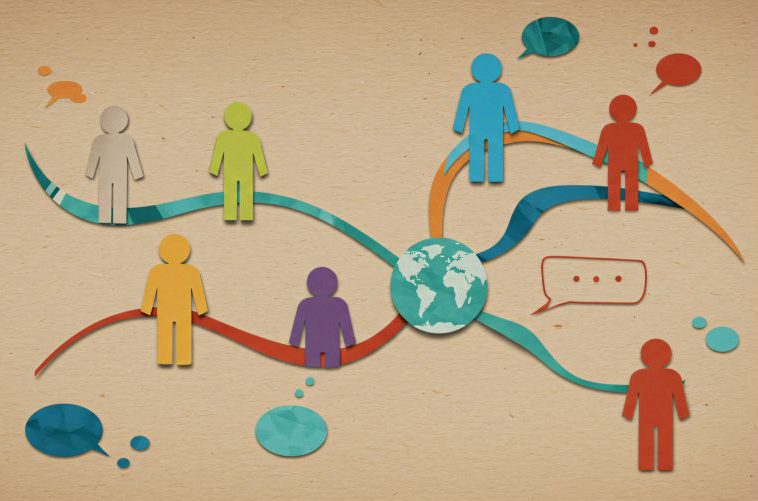
One Drink, Big Trouble: Consequences of a DUI Conviction for Teenagers
Posted by
Teenagers are often impulsive, craving that feeling of invincibility and the thrill of living in the moment. But sometimes impulsivity leads to dangerous decisions, like choosing to drive after drinking alcohol.
In the heat of the moment, facing peer pressure or a desire to fit in, teenagers may not fully consider the consequences of their actions.
But here's the reality check: Driving under the influence is never a safe option, no matter how confident you feel. Alcohol impairs judgment, slows reaction time, and affects anyone's ability to make split-second decisions on the road. Teens may not realize it now, but one wrong move could have devastating consequences for them and everyone else on the road.
Teen DUI and Its Potential Effects on A Teen’s Future
Driving under the influence (DUI) convictions can have severe—and long-lasting—consequences for teenagers. Understanding these potential repercussions is crucial for preventing such incidents and mitigating their aftermath.
Legal Consequences of Teen DUI
A teenager who receives a DUI charge faces a myriad of legal consequences. A first-offense DUI typically results in fines, license suspension, and mandatory participation in alcohol education programs. However, drivers under age 21 face even harsher penalties, especially in states with zero-tolerance laws.
The law stipulates that drivers under 21 with a blood alcohol concentration (BAC) of 0.02% or higher can receive a license suspension for up to one year, whether it's a first offense or not. One time of driving under the influence can have long-lasting legal ramifications for teenagers.
Long-Term Consequences
A DUI on a teen's record isn’t just a slap on the wrist. It can stay with them for years, making it harder to land a job, find a decent place to live, or have a decent quality of life. That’s why it’s important to address why teens drink underage in the first place to stop these situations before they begin.
Financial Ramifications
A DUI conviction can hit teenagers and their families hard in the wallet. In addition to court-imposed fines, DUI convictions often carry hidden costs:
- Increased insurance premiums
- Additional legal fees
- The requirement to install an ignition interlock device (IID).
Teenagers convicted of DUI may have an IID installed in their vehicle to prevent them from driving under the influence again. This device requires the driver to pass a breath test before the car will start. The cost of installing ($70 to $150) and maintaining an IID ($60-$90/month) can add up over time, further straining the financial resources of teenagers and their families.
Loss of Driving Privileges
The most immediate and tangible consequence of a DUI conviction? Losing driving privileges. A DUI conviction often results in the suspension or revocation of a teenager's driver's license, which creates logistical challenges for essential activities like commuting to school or work and participating in social activities.
Educational and Career Implications
A DUI on your record can follow teens for years, potentially throwing a wrench into college plans or a dream job. Many educational institutions and employers do background checks. A DUI record could hurt your chances of acceptance or landing that job.
Certain professional licenses and certifications require clean records —like doctors, lawyers, and pilots, for example. A DUI conviction on record could shut the door on these options, limiting career options and future earning potential.
Impact on Personal Growth and Development
A DUI doesn’t just mean a lost license and a hefty fine. Teenagers may feel the effects in other ways, too:
- Trust takes a hit when teens make a risky choice to drive under the influence. Friends might avoid them, and relationships with family members and other trusted adults could become strained.
- Social media moves fast, and a DUI arrest can stain a teen’s reputation for a long time.
- Even if no one gets hurt, the weight of a bad decision can weigh heavily on a teen, encumbering them with feelings of guilt and shame for a long time.
This scenario becomes more devastating when the DUI results in an accident. Imagine the emotional trauma if someone is hurt — or worse. Even without injuries or fatalities, the stress of legal consequences takes a toll on everyone involved.
How to Effectively Address Teen DUI
Addressing teenage DUI requires a comprehensive approach combining education, prevention, intervention, and support. Here are some strategies for effectively addressing teenage DUI:
Education and Awareness Programs
Parents, schools, and community organizations all play a crucial role in teaching young people about the dangers of drinking and driving via:
- Implementing alcohol education programs.
- Organizing awareness campaigns.
- Providing resources for teens and their families.
Additionally, programs offering support and rehabilitation for teenagers struggling with alcohol or substance abuse can help address the root causes of DUI incidents and prevent future issues.
Parental Involvement
Parents and caregivers should engage in open and honest discussions with their teenagers about alcohol, responsible drinking, and the importance of making safe choices. Parents should:
- Set clear expectations and boundaries regarding alcohol use.
- Establish rules about underage drinking.
- Serve as positive role models for responsible behavior.
Zero Tolerance Policies
Advocate for the enforcement of zero-tolerance policies for underage drinking and driving. These policies should include strict penalties for teenagers caught driving under the influence, including license suspension, fines, and mandatory participation in alcohol education programs.
Alternative Transportation Options
Promote alternative transportation options for teens who find themselves in situations where alcohol is involved. Encourage the use of designated drivers, rideshare services, public transportation, or sober friends to ensure that teenagers have safe alternatives to driving under the influence.
Early Intervention
Spot the signs and stop the cycle with early intervention. Identifying teens at risk of underage drinking and DUIs is critical. Look for warning signs like changes in behavior, mood swings, or secretive activities. Educators or counselors can even use quizzes or anonymous surveys to help teens assess their own risk factors.
Addressing underlying issues and providing support early on can help teenagers make positive changes in their behavior and avoid future DUI offenses.
Community Involvement
Communities play a crucial role in addressing DUI convictions among teenagers. Here’s how:
- Parents and community leaders should collaborate to sponsor events, campaigns, and initiatives that resonate with teens.
- Make responsible choices the cool choice by promoting events with fun activities and positive messages about the dangers of underage drinking and driving.
- Spread awareness loudly and clearly with campaigns using social media, local media, and local forums to get the word out.
A supportive and understanding environment can help teenagers feel empowered to make responsible choices and seek help when needed.
Support Systems
Teenagers who have been convicted of DUI need support systems to help them navigate the aftermath and prevent future incidents. Counseling services help them understand the reasons behind their decision and develop coping strategies to resist peer pressure or substance abuse in the future. Joining a peer support group that connects them with other teens with similar experiences can provide a sense of community and understanding as they work toward rehabilitation.
Legal Assistance
Navigating the legal system can feel daunting for teenagers and their families. They should start by engaging an attorney who specializes in DUI cases. These professionals provide guidance, representation, support, and advocacy throughout the case. A good DUI lawyer will advocate for the teen’s best interests, working to protect their rights, minimize penalties, and achieve the best possible outcome.
Don’t Drink and Drive
The consequences of a teen DUI conviction extend beyond the courtroom, affecting every aspect of their lives. The impact of legal penalties, financial burdens, and personal repercussions can have a profound impact. Teenagers and their parents must understand the gravity of these consequences and take proactive measures to prevent DUI incidents in the first place.
Through education, heightened awareness, and fostering responsible behavior, we can reduce the number of DUI incidents, protect teens’ lives, and create safer communities for all.
Blog Categories
- Career Advice
- College Admissions
- Colleges & Universities
- Financial Aid and Scholarships
- For Counselors
- For Parents
- For Students
- Gap Years
- Mental Health and Wellness
- Online Learning
- Performing and Visual Arts
- STEM Majors and More
- Summer Programs
- Teen Volunteering
- Trade & Vocational Schools
- Tutoring & Test Prep

Organization with listings on TeenLife? Login here
Register for Free
We’re here to help you find your best-fit teen-centered academic and enrichment opportunities.
Forgot Password
"*" indicates required fields







